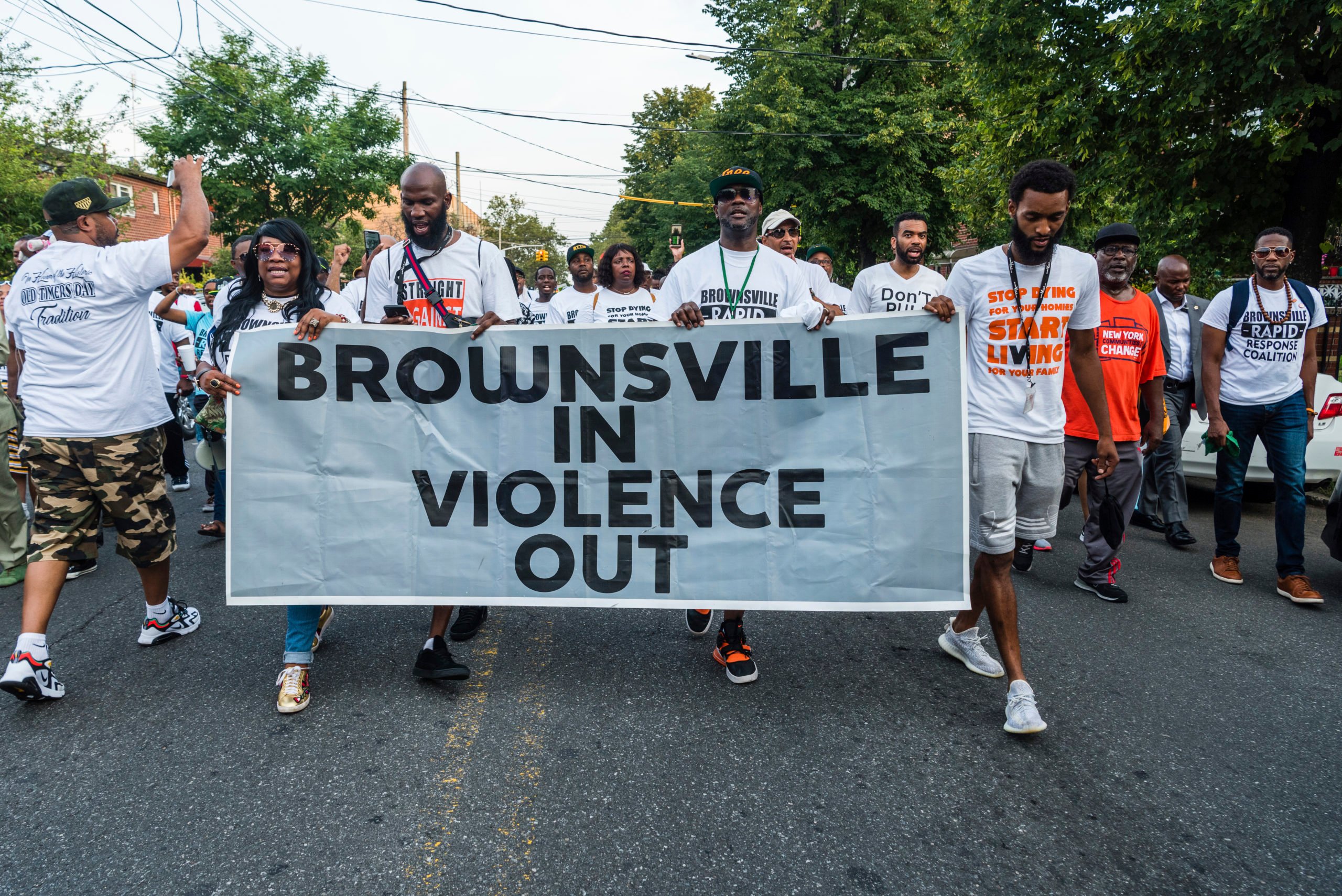What To Know Today
Voters support addressing root causes of gun violence with community investments: survey. A new poll from the left-leaning Data for Progress polling outfit, which conducted a survey of likely voters in early July, contained a number of interesting findings on voters’ nuanced views on public safety:
- The popularity of community-violence interventions: Sixty-four percent of all likely voters said Congress should spend more on community-focused violence intervention, with similar levels of support among Black (69 percent), Hispanic (70 percent), and white (63 percent) respondents.
- Gun violence is a more immediate worry for nonwhite voters: While 33 percent of all respondents were “very concerned” about gun violence in their own communities, Black (51 percent) and Hispanic (53 percent) respondents were far more likely to be “very concerned” than white respondents (29 percent).
- Gun violence is bigger than guns: A plurality of respondents (46 percent) identified a failure to address root causes — including poverty, mental health, and social trauma — as the most important factor for the prevalence of American gun violence. Another 39 percent attributed gun violence to the availability of guns, and 10 percent to weak law enforcement. Democrats were more likely to identify gun availability and Republicans were more likely to identify root causes as the primary drivers.
Highway shootings in California doubled in two years. Nearly a quarter were attributed to road rage in 2021. The Guardian dives into the latest figures from the California Highway Patrol that found a marked increase in freeway shootings from 2019, when there were 210, to 2020 and 2021, when there were 397 and 411, respectively. While gun violence in general also increased in that period, the increase in highway shootings increased much faster than, say, gun homicides. Public safety experts pointed to an array of potential reasons for the uptick, from pandemic-related dislocations to the difficulty of solving highway crime to loosening informal rules governing street violence. Nationally, road rage incidents are much deadlier than five years ago, we found in a May installment of Ask the Trace.
New Jersey retains hospital-based violence intervention programs with $10M federal investment. Last month, a state organization responsible for training and assistance for the program that launched in January 2020 said New Jersey had run out of funding to be able to continue operating hospital-based intervention initiatives, which provide services to gunshot victims in hopes of interrupting retaliatory cycles of violence. The state’s governor and attorney general announced they were using money from the federal American Rescue Plan Act to extend the program for at least another 12 months after current federal VOCA funds run out. From The Trace: HVIP programs have become an increasingly common violence intervention.
Men convicted of killing Ahmaud Arbery receive additional life sentences for federal hate crimes. On top of state life sentences, Travis and Gregory McMichael were convicted in federal court of violating the 25-year-old Georgia man’s civil rights when they pursued him and fatally shot him in 2020. A third man who also was convicted on state charges and serving a life sentence, William Bryan, was sentenced alongside the McMichaels to an additional 35 years.
Data Point
37 percent — the share of survey respondents from Baltimore neighborhoods with elevated levels of gun violence who said police were stopping the people most responsible for violence. At the same time, about half thought the Baltimore Police were effective at arresting violent criminals. The survey also found that a quarter of survey respondents reported having been a gun violence victim, a third reported feeling unsafe in their area, and just under a half thought police would respond quickly to reports of gunfire. [Journal of Criminal Justice]

